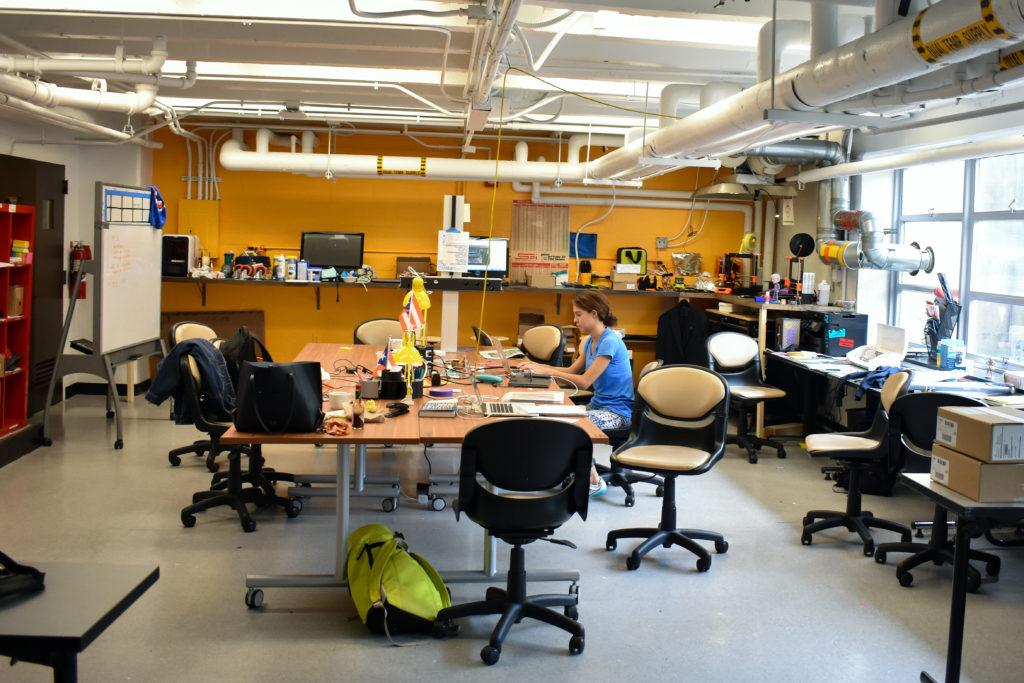Updated: Sept. 11, 2018 at 3:24 p.m.
The Office of Innovation and Entrepreneurship is trying to boost participation in its annual startup business competition.
Scott Stein – the associate director of the innovation office’s signature startup competition, the New Venture Competition – said the office is introducing two new events this fall: a social innovation workshop and a weekend-long innovation boot camp. He said the events will engage students who have never previously thought about starting a business, broadening the scope of students who pitch and develop their own businesses and compete for $150,000 in prize money each year.
The social innovation workshop will be split into two separate days in September and October and will include a series of thought exercises to help innovators who may have ideas but don’t know how to turn them into real products or businesses, Stein said. Students often can see problems they want to solve in their community but are not sure how to start to fix them, he said.
“I think oftentimes people don’t push themselves enough into thinking outside of the box,” Stein said.
He said he created two dates for the workshop to keep the growing number of interested students in small groups, so each student could get special attention from the innovation office’s staff members who are running the workshop.
The School of Engineering and Applied Sciences opened a new space for students to work on their inventions last year because of booming interest in startup technology.
“What I saw was a lot of students who had amazing passions for doing something and wanted to put that into action by creating either a social-purpose business or even a nonprofit,” Stein said.
A two-day boot camp at the end of September in Gelman Library will provide another chance for students to evolve their ideas ahead of the competition, Stein said. Once innovators feel more comfortable practicing pitches and performing other startup tasks at the boot camp, he said they will be more confident in their ability to do well at the New Venture Competition in the spring.
The innovation office is partnering with two nonprofits focused on helping startups, SEED SPOT and Ycenter, to run the boot camp. C’pher Gresham, the vice president of SEED SPOT Communities, said the new event will teach interested students how to think about developing their ideas and boost their confidence ahead of the competition. By giving students these skills, Gresham said she hopes that students from diverse backgrounds will feel empowered to develop their ideas into a finished product at the competition.
“You don’t know if your idea is good or you don’t know even how to vet or start your idea,” he said.
Having students from non-business schools at GW participate in the competition brings new perspectives and new problems to the contest and the startup industry, Gresham said. Because everyone is exposed to different parts of society, students from a public health or humanities background might be interested in other types of inventions or innovative companies than students with business backgrounds, he said.
“Social entrepreneurship is about solving those problems that are facing society, that are facing groups and populations and facing the environment,” he said.
Jelena Gvozdenovic-Jeremic, a second-year business master’s student, who was a runner-up in the New Venture Competition last year, said having events before the competition could give students who are from non-business backgrounds specific experience they need to be successful in the contest.
“It’s very valuable because it’s a different way of thinking and developing your communication skills,” she said.
Elizabeth Terry, a second-year graduate student in the business school who was a runner-up in the competition last year, said that when she first got involved in the contest, she was interested in solving community issues and had ideas but didn’t know how to develop a business. The social innovation workshop and startup boot camps are designed to help students with a similar lack of knowledge.
“The starting of one wasn’t clear to me, and the GW Venture Competition really cemented that for me, like the process for starting one yourself,” she said.
This post was updated to reflect the following correction:
The Hatchet incorrectly reported that the Office of Innovation and Entrepreneurship opened a space last year for students to work on inventions. The space was opened by the School of Engineering and Applied Sciences. We regret this error.




